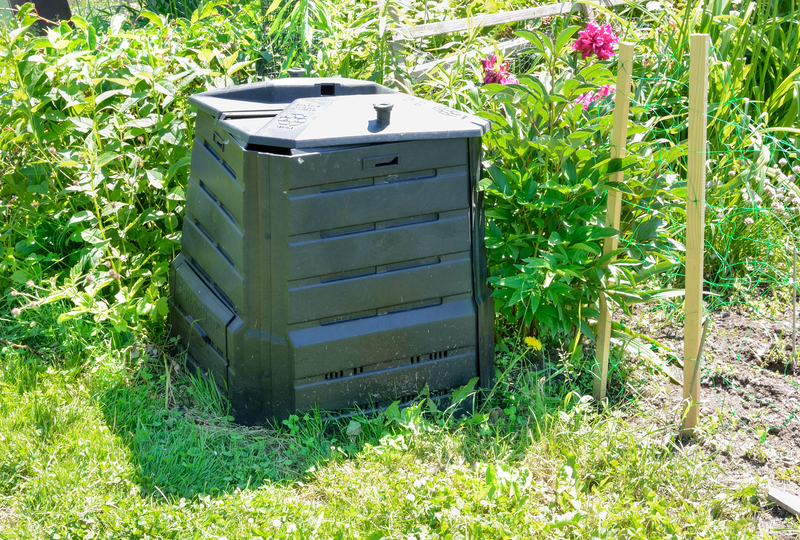A Sustainable Solution: How Composting Can Reduce Food Waste in Your Home
Posted on 07/09/2024
In today's fast-paced world, we often find ourselves guilty of contributing to the growing problem of food waste. From leftovers being thrown out to produce going bad before we have a chance to consume it, our daily habits are leading to a significant amount of food ending up in landfills. According to the United Nations' Food and Agriculture Organization, approximately one-third of all food produced globally is wasted every year. This not only has negative impacts on the environment but also on our wallets. However, there is a simple and sustainable solution that can help reduce food waste in our homes - composting.
Composting is the process of transforming organic waste into nutrient-rich soil for plants. It involves combining food scraps, yard waste, and other organic materials in a bin or pile and allowing them to break down naturally over time. This process not only reduces the amount of food waste that ends up in landfills but also provides numerous benefits for both the environment and our gardens.
How Does Composting Help Reduce Food Waste?
Composting is an effective way to reduce food waste as it diverts organic materials from landfills where they would otherwise take up space and emit harmful greenhouse gases such as methane. When food waste is sent to landfills, it breaks down without oxygen, resulting in the production of methane gas, which is a potent contributor to climate change.
By composting at home, we not only decrease our carbon footprint but also get to utilize this valuable resource in our gardens. The rich compost created through this process can be used as a natural fertilizer for plants, improving soil health and reducing the need for chemical fertilizers.

The Pros and Cons of Composting
While composting offers many benefits, there are also some potential drawbacks to consider.
Pros:
- Reduces food waste and greenhouse gas emissions.
- Provides nutrient-rich soil for plants.
- Can save money on fertilizers and reduce the need for chemical pesticides.
- Easy to do at home with minimal equipment.
- Can be done year-round, indoors or outdoors.
Cons:
- Can attract pests if done improperly.
- May produce unpleasant odors if not managed correctly.
- Requires regular maintenance and monitoring.
- Some materials, such as meat and dairy products, should not be composted at home.
To minimize potential issues, it is essential to research the proper techniques for composting and follow best practices. For instance, adding a layer of soil or leaves to cover food scraps can help deter pests and control odor.
Tips for Composting in Your Home
1. Choose the right bin - There are various types of compost bins available in the market, including wooden, plastic, and DIY options. Consider your space limitations and budget to select the most suitable one for your needs.
2. Know what to compost - Not all organic materials can be added to a compost pile. Green waste like fruit and vegetable scraps, tea bags, coffee grounds, and eggshells are ideal. Yard waste like grass clippings, leaves, and twigs can also be included. However, avoid adding any animal products, fats or oils, or diseased plant material to your compost.
3. Maintain proper balance - A good compost pile requires a balance between carbon-rich materials (also known as "brown" materials) like dry leaves and paper products and nitrogen-rich materials (known as "green" materials) like food scraps and fresh grass clippings. Aim for a ratio of 3:1 of brown to green materials.
4. Turn your pile regularly - Turning your compost every week or so helps aerate it and speeds up the decomposition process.
5. Keep it moist - Compost piles should have a moisture content similar to that of a wrung-out sponge. Be sure to water your pile if it becomes too dry.

Takeaways
Composting is a simple and sustainable solution to reduce food waste in our homes. Not only does it help the environment, but it also provides nutrient-rich soil for plants, reduces the need for chemical fertilizers, and can save us money. However, it requires proper maintenance and knowledge to be successful.
By adding composting as part of our daily habits, we can make a positive impact on the environment and help create a more sustainable future.
In Conclusion
The staggering amount of food waste produced globally has significant environmental and economic impacts. However, by implementing composting into our daily routines, we can significantly reduce this waste and benefit our gardens at the same time. With the right knowledge and practices, composting can be an accessible and effective way to create a sustainable solution for managing food waste in our homes. Start composting today, and let's work towards a greener future together.
Latest Posts
Eco-Friendly Home Organization
Dispose with Care: Responsible Strategies for Removing Waste
Sustainable Solutions for Commercial Waste
Sustainable Solutions: A Closer Look at London's Waste Reduction Efforts

 020 3744 5712
020 3744 5712










